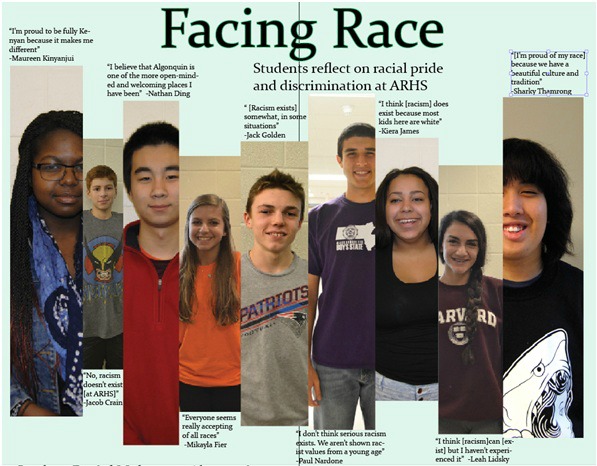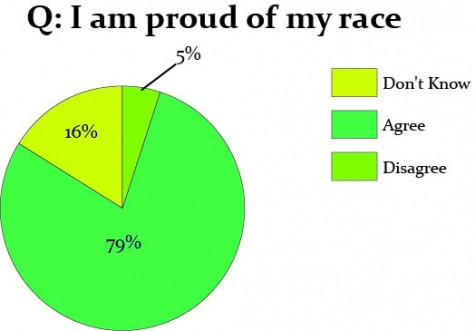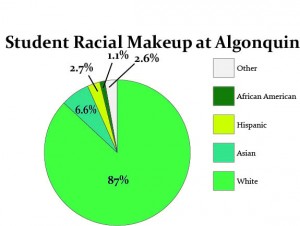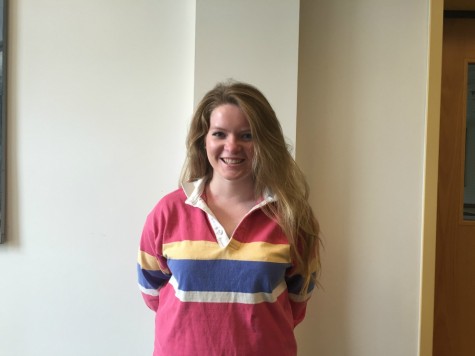Students speak out on racial diversity

Photos Rachel Berthiaume & Natalie Lambert
January 18, 2015
It’s one thing to look at the statistical proof of the school’s racial diversity, but it’s another thing to discover from students what it actually feels like to be a member of a racial minority group at Algonquin.
When 116 students were asked if they thought racism existed at Algonquin, 42 percent of students disagreed, 31 percent agreed, and 27 percent said they weren’t sure.
Many students are passionate about the subject of racial diversity and want their voices to be heard. Mazen Yatim, a freshman, is of Middle Eastern decent. He says that racism exists at Algonquin.

“It may not be as prominent as people physically hurting someone but you hear people insulting someone using racist remarks,” Yatim said. “I get those remarks.”
Attending a school that is 87 percent caucasian, Yatim experiences what it feels like to be looked upon differently.
“I feel judged because of my race because I know when people see my name they think I’m different than everyone else,” Yatim said. “My name isn’t normal and people judge me differently because of that. They think, ‘oh he is different’, he isn’t ‘normal.’”
Some students, including junior Ariel Wilbekin, who is African American, also experience the effects of stereotyping that come with certain ethnicities.
“I’m expected to be better at sports because of my skin color,” Wilbekin said.
Wilbekin also sees the positive side to being a minority race at Algonquin.
“I can get into college by being a minority and being a minority allows me to be different from everyone else,” Wilbekin said.
Although some students may feel like they are direct targets for racism, sophomore Eden Nashnaz, who is Asian, believes her race gives her a way to express who she is as a person.
“This is me and I am proud of my race and my country,” Nashnaz said.
Many students believe in the importance of racial diversity awareness, viewing Algonquin as a place for students to learn from the interaction of different cultures.
“I think it’s important that we encourage diversity in our school in many different ways, not just with the race issue, but I think it’s important how we talk about different cultures and how different cultures intersect with our own,” senior Jillian Rizzitano, who is caucasian, said.
Despite minorities sometimes being misjudged because of their race, Yatim, like many Algonquin students, believes that race is an essential part of his identity.
“I feel proud of my race because it is who I am, and no one can change that,” Yatim said. “It makes me different and unique and I enjoy it. So no matter how much I am judged and misunderstood I will always be proud of who I am.”










